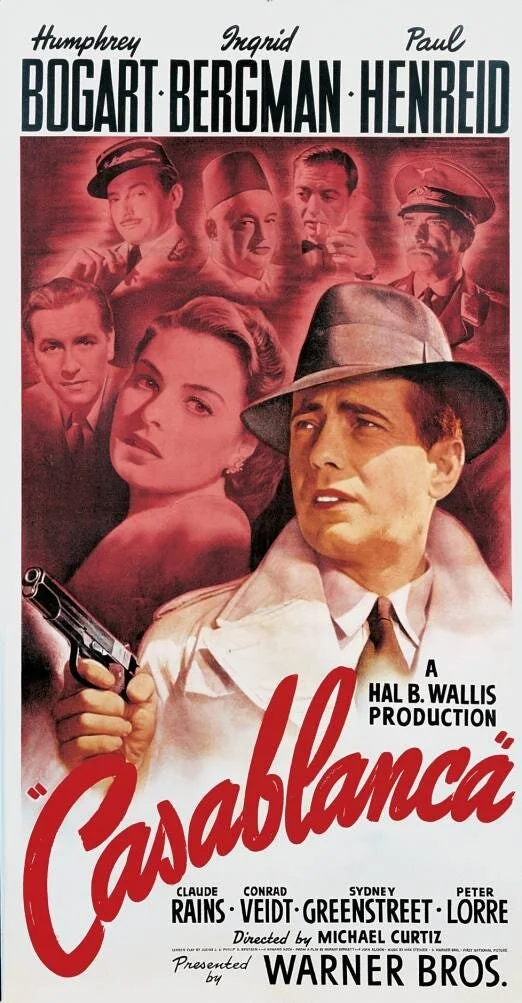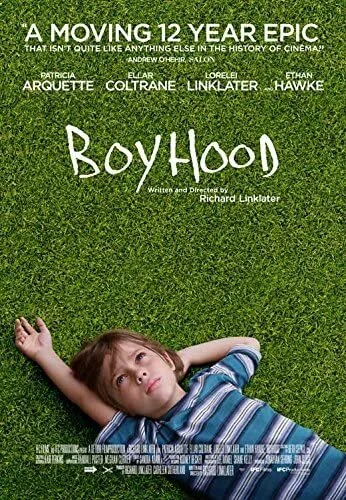Casablanca (1942)
I just watched the first episode of a documentary miniseries, CNN’s The Movies (2019), titled “The Golden Age”, and it discussed American cinema through the 1930s to the 1950s. I found the episode really interesting and it inspired me to watch the iconic 1942 romance/war picture, Casablanca. Truthfully, I was not expecting this film to hold to today’s standards, but director Micheal Curtiz proved me wrong! Running at 1 hour and 42 minutes, Casablanca held up remarkably and engaged me from beginning to end with it’s incredibly tight script, exceptional performances by Humphrey Bogart and Ingrid Bergman, and gorgeous sets.
Set in Casablanca, Morocco during World War II, popular nightclub owner, Rick Blaine (Humphrey Bogart) is coincidentally reunited with former ladylove, Ilsa (Ingrid Bergman). Ilsa is in Casablanca with her husband and prominent rebel Victor Laszlo (Paul Henreid). With the Third Reich prying on Laszlo’s every move, Ilsa must convince Rick to help them get out of Casablanca.
Casablanca won three academy awards in 1943 for best picture, director, and screenplay. And after watching the film, it’s very clear why. Not only is this movie incredibly important in the history of American cinema, it simultaneously set a standard of virtuous equality, nudging at the United States to enter WWII. On paper this is a romance film involving love triangles and love affairs, but it’s the political messages that keep the script crisp and take this film to the next level. Bogart’s character is faced with a choice: to either keep Ingrid Bergman, with him in Casablanca, or to send her away with her famed resistance pioneer husband. The choice becomes between personal happiness and combatting facism. Humphrey’s character changes throughout the course of the film, transitioning from “I stick my neck out for nobody,” to “The problems of three little people in a big world don’t add up to much.”.
Casablanca is nothing short of iconic. It’s one of the most quotable pieces of cinema ever made, giving us lines like: "Here's Looking At You, Kid.", "We'll Always Have Paris.", and "I Think This Is The Beginning Of A Beautiful Friendship." In my opinion, the greatest strength in the movie is the screenplay. Written by Julius J. Epstein, Philip G. Epstein and Howard Koch, the way the three writers emphasize dialogue and not action throughout mark its triumph as a film and would start a new trends in Hollywood. Modern movies like Pulp Fiction (1994), Annie Hall (1977), The Social Network (2010), and Good Will Hunting (1997) are examples of films that have followed in Casablanca’s footsteps by prioritizing memorable lines over action sequences.
I have always been told that there are certain movies that everyone must watch, and Casablanca is definitely one of them. This movie is without a doubt one of the most important and best films ever made, and don’t be weary of it’s release date, it holds up beautifully.









